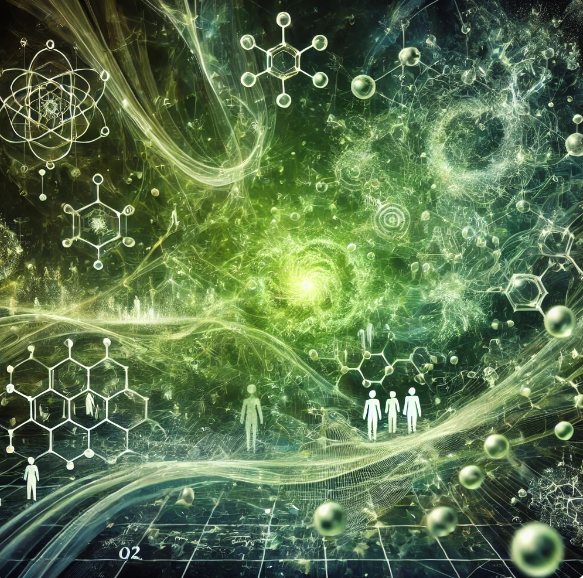Insider Brief
In her TEDx talk, Dr. Rebecca Davis, a quantum chemist, explored how molecular interactions in quantum chemistry mirror human relationships, drawing parallels between how molecules bond, break apart, and form new structures, much like human relationships influenced by their environment.
Davis highlighted the progress of scientific understanding from recognizing molecules as atoms to predicting their behavior, likening this journey to humanity’s own advancement in technology, medicine, and sustainability through creativity and imagination.
She stressed how quantum chemistry models, like societal change, are influenced by complex systems, showing that while predictions may work in isolation, real-world outcomes are often affected by external factors, reinforcing the interconnectedness of science and human behavior.
In her TEDx talk, How Quantum Chemistry Mirrors Humanity, Dr. Rebecca Davis, a quantum chemist and professor at the University of Manitoba, explored how molecules — the building blocks of our world — reflect the complexities of human interactions. Through the lens of quantum chemistry, Davis drew powerful parallels between molecular behavior and human experiences, providing a unique perspective on both science and society.
Davis began by introducing her audience to the fundamental nature of molecules, explaining: “Molecules make up much of our world, so it’s easy to take for granted that they exist.” Yet, she pointed out, it’s the same with human behavior. Both are dynamic, ever-changing, and shaped by the environments in which they exist. This connection is reflected in language: “The term ‘chemistry’ itself carries a dual meaning — it’s a study of matter, but it also describes the complex emotional and physical interactions between people.”
She went deeper into how molecules behave, emphasizing that their interactions are not unlike human relationships. Molecules bond, break apart, and form new structures based on their environment and circumstances, just as humans form and dissolve relationships.
“Imagine if we could predict the outcome of an interaction — add in all of the variables, preferences, and compounding environmental factors, and determine whether two things are going to bond to form something useful, or whether they’re just going to blow up,” said Davis.
Davis’ talk was not just about science, but also about the way humanity has harnessed its curiosity and creativity to unlock the secrets of molecules. She shared that “in just two centuries, we’ve come from understanding that molecules are made up of atoms to being able to predict how molecules behave and design molecules with the properties that we desire.” This scientific progress, according to Davis, mirrors humanity’s own advancement. Our ability to imagine and create has enabled us to develop groundbreaking technologies, medicines, and sustainable materials — all rooted in our understanding of molecular behavior.
What is particularly compelling was Davis’ analogy between the behavior of molecules and the dynamics of human society. She explained how quantum chemistry helps scientists understand molecular behavior in isolation, but that doesn’t always predict what happens in a larger system.
“While our models might predict that a reaction should be favorable between two molecules in isolation, it can be experimentally inhibited by the other things in the system,” Davis said. She likened this to societal change: “An idea that seems simple or easily achievable in isolation…is much harder to achieve when you account for the amount of support you need from people in order to enact necessary policy changes.”
Through these connections, Davis reminds us that science is not detached from human life. Just as molecules are influenced by their environment, so too are we influenced by the complexities of our social systems. In her closing thoughts, she offered an uplifting message: “The greatest aspects of humanity — our creativity and our ability to imagine, explore, and extrapolate — are constantly allowing us to advance and create things that improve the world for all of humanity.”
By examining the parallels between quantum chemistry and human behavior, Davis provided a fresh perspective on both fields, leaving the audience with a deeper appreciation of how interconnected science and society truly are.

